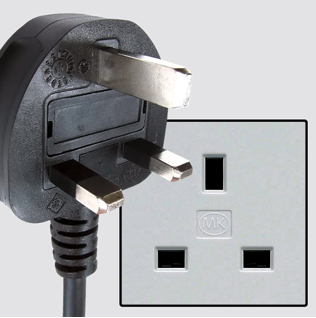Tanzania / Jamhuri ya Muungano wa Tanzania – Let’s explore here

What’s it like in Tanzania?
Tanzania is a large country in eastern Africa – almost four times the size of the UK. It’s one of the oldest continuously inhabited places in the world, and today is the most populous country in the southern hemisphere. The population of Tanzania is around 67½ million (2024), although only about ¾ million people live in the capital, Dodoma. Almost nine million live in Dar es Salaam however.
Tanzania is home to Africa‘s tallest mountain, Mount Kilimanjaro, at 19,341 ft (5,895 m) above sea level. It’s also the location of Africa’s largest lake, Lake Victoria, Africa’s deepest lake, Lake Tangayika, and the Serengeti National Park.
It shares land borders with Burundi, DRC, Kenya, Malawi, Mozambique, Rwanda, Uganda and Zambia.

A bit about the history of Tanzania
Pre-Colonial Era
Before European colonisation, the region that became Tanzania was home to diverse ethnic groups, including the Bantu-speaking people, the Hadza and the Maasai. These groups had established trade routes, agriculture and pastoralism. Coastal areas, such as Zanzibar, were key trade hubs, connecting Africa with Arabia, India and Persia.
Colonial Period
In the late 19th century, the region was divided between the German Empire and the British Empire. Germany controlled the mainland, known as German East Africa (now mainland Tanzania), from the 1880s until the end of World War I. After the war, the British took control under a League of Nations mandate, renaming it Tanganyika. The island of Zanzibar, an important centre of trade and culture, was a British protectorate.
Struggle for Independence
During the colonial period, the local population began to resist foreign rule, with various nationalist movements emerging. In 1954, the Tanganyika African National Union (TANU), led by Julius Nyerere, began campaigning for independence. Tanganyika gained its independence from Britain on 9 December 1961, and Nyerere became the first prime minister. Zanzibar followed with independence in 1963, although it soon faced internal strife.
The Zanzibar Revolution and Unification
In January 1964, the Zanzibar Revolution led by Africans overthrew the Arab-dominated Sultanate of Zanzibar. Following the revolution, Zanzibar and Tanganyika merged in April 1964 to form the United Republic of Tanganyika and Zanzibar, which was soon renamed Tanzania. Julius Nyerere became the first president of the new nation, overseeing the unification process.
Nyerere’s Ujamaa and Nation-Building
Julius Nyerere’s government promoted a policy of ‘Ujamaa’ (familyhood), which aimed to collectivise agriculture and encourage self reliance. The government nationalised key industries and sought to modernise the economy, but the policies led to inefficiency and economic stagnation. Nyerere’s socialist policies also faced challenges from political opponents and economic realities. Nyerere stepped down in 1985, leaving a mixed legacy of nation building and economic struggles.
Economic Reform and Multiparty Politics
In the late 1980s and early 1990s, Tanzania faced economic difficulties, leading to reforms aimed at liberalising the economy. In 1992, Tanzania adopted a multiparty political system, marking a shift from Nyerere’s one party rule. The first multi party elections were held in 1995, with Benjamin Mkapa of the Chama Cha Mapinduzi (CCM) party winning the presidency.
The Rise of the CCM and Successive Presidencies
Tanzania’s political system remained dominated by the CCM party, which had been the party of independence and continued to influence politics through subsequent elections. Mkapa was succeeded by Jakaya Kikwete in 2005, who focused on modernising the economy and expanding infrastructure, though corruption remained a challenge. Kikwete’s tenure also saw the discovery of significant natural gas reserves, which were hoped to drive future growth.
John Magufuli’s Presidency
John Magufuli, elected president in 2015, adopted an aggressive anti-corruption stance and pushed for greater government control over the economy. His government focused on large scale infrastructure projects, such as new roads, railways and energy plants. Magufuli’s presidency, however, was criticised for authoritarian tendencies, a crackdown on the media and restrictions on political freedoms.
Tanzania in 2025
As of 2025, Tanzania is experiencing political and economic transitions. After Magufuli’s death in 2021, Samia Suluhu Hassan became the country’s first female president, leading the nation through a period of recovery. Her administration has sought to address issues such as human rights, economic recovery, and foreign investment. Tanzania faces challenges, including poverty, inequality and environmental issues like deforestation and climate change. The country is focusing on diversifying its economy, particularly through natural resources and manufacturing. However, political freedoms and democratic reforms remain areas of ongoing debate. The CCM remains the dominant political force, but there is growing civil society engagement and international interest in Tanzania’s future.

Tanzania road trip
Our Tanzanian road trip is part of a much larger African road trip.
Map of our road trip through Tanzania

Our current planned route takes us from Malawi through the west of the country, before moving onto Burundi. Whilst there we may also head east to the coast, the capital and Zanzibar.
Hopefully our journey will improve our knowledge of this intriguing and beautiful country, and enable us to meet some interesting people. We’ll be updating this page at that time – don’t forget to check back 🙂
What’s it like to drive in Tanzania?
They drive on the right hand side of the road in Tanzania. In the main, roads are quite good, however many are unsurfaced dirt tracks. Driving standards are also quite good.
Do you require an international driving permit in Tanzania?
We’ve created a dedicated page to driving abroad, which answers this question, and more, which you might find helpful.
Can you use your UK driving license when driving through Tanzania?
We’ve created a dedicated page to driving abroad, which answers this question, and more, which you might find helpful.
Do I need a carnet de passages to drive in Tanzania?
A Carnet de Passages is required to overland in Tanzania. We’ve created a dedicated page to driving abroad, which answers this question, and more, which you might find helpful.
What currency do they use in Tanzania?
In Tanzania they use the Tanzanian Shilling, although US dollars are widely accepted. Cash is widely used. The use of credit / debit cards becoming more widely accepted outside of the capital and tourist areas. Travellers cheques are not readily accepted. There are some ATMs in cities throughout the country.
You should make yourself aware of the amount that your bank charges you for using credit and debit cards abroad. Often credit cards are cheaper for purchasing items directly, and for withdrawing cash from ATMs.
What language do they speak in Tanzania?
They mainly speak Swahili in Tanzania, although English is also an official language, and is thus also widely spoken. Arabic is also spoken by many in the country.
What time zone is Tanzania in?
Remember, when you’re planning your next trip to take a look at what time zone it’s in.
Do I need a visa to visit Tanzania?
We’ve created a dedicated, more comprehensive page on visas, which you should find helpful. Check it out!
Is wild camping legal in Tanzania?
Yes, wild camping is fine in Tanzania.
What plug / socket type do they use in Tanzania?
In Tanzania they use plug / socket types D and G.


Health issues in Tanzania
Is it safe to drink water in Tanzania?
No, it is not safe to drink tap water in Tanzania. Bottled water is readily available throughout the country.
What vaccinations are required for Tanzania?
This NHS website is kept up to date with all relevant information on vaccinations in Tanzania.
Phones in Tanzania
What is the country calling code for Tanzania?
The country calling code for Tanzania is +255
What are the emergency phone numbers in Tanzania?
- The emergency number for police in Tanzania is: 112 / 999
- In Tanzania, the emergency number for ambulance is: 114
- The emergency number for fire in Tanzania is: 115
If you’ve got some useful info that you’d like to share, let us know!
And don’t forget to check out all the other pictures!
